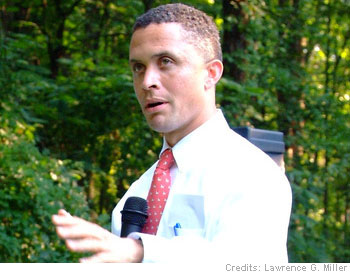 Apparently, it is possible to write a whole New York Times article on Harold Ford considering a run for Senate in New York without mentioning a single position he has on any issue. Read it here. It’s about donors and fundraising, not issues and constituencies. And even with all the political commentary in the article, I still cannot figure out if the presumed dissatisfaction with incumbent Kirsten Gillibrand is because she is too far to the Left or to the Right.
Apparently, it is possible to write a whole New York Times article on Harold Ford considering a run for Senate in New York without mentioning a single position he has on any issue. Read it here. It’s about donors and fundraising, not issues and constituencies. And even with all the political commentary in the article, I still cannot figure out if the presumed dissatisfaction with incumbent Kirsten Gillibrand is because she is too far to the Left or to the Right.
Looking for more disappointment? Consider these three excerpts:
Those who have expressed interest in a Ford campaign remain skittish about discussing it publicly, citing Ms. Gillibrand’s power over billions of dollars in financing around the state.
Why should an incumbent U.S. Senator have such power? Is there no better way to do our national budget than to give Senators walking-around money? Or how about this:
But he [Ford] has a formidable track record as a fund-raiser. During his Senate run [in Tennessee], he amassed about $15 million, with about a fifth of his contributions coming from New York.
I’m sure the good people of Tennessee appreciated the influence that out-of-staters had on their election. As I’ve said before, this should be banned.
In New York, Mr. Ford took a job as vice chairman of Merrill Lynch, where he cultivated close ties to many of the Wall Street executives who are now encouraging him to run.
Well, that’s reassuring. I certainly wouldn’t want New York to elect a Senator who hadn’t cultivated close ties with Wall Street executives, who have been the paragons of virtue over the last couple of years.
Disclaimer: This page contains affiliate links. If you choose to make a purchase after clicking a link, we may receive a commission at no additional cost to you. Thank you for your support!



Leave a Reply